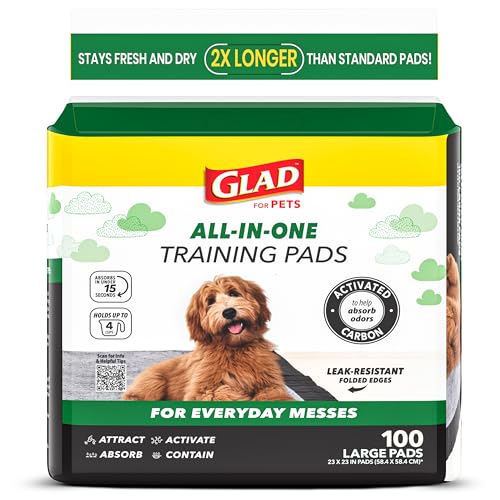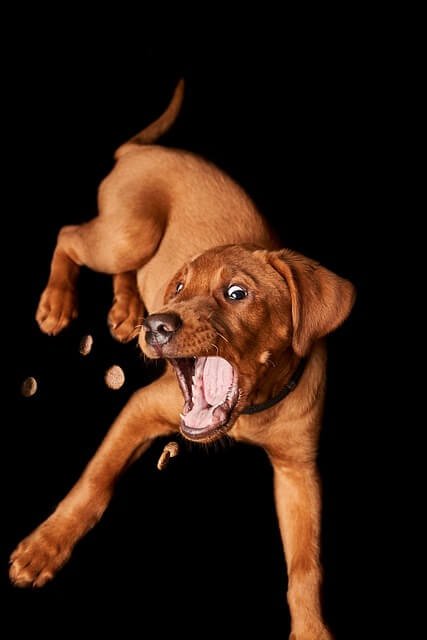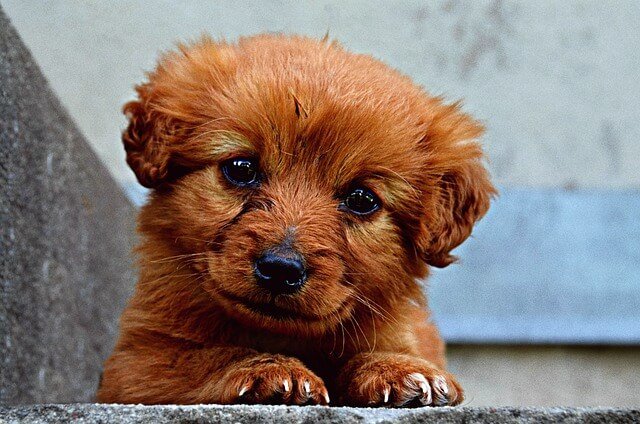Pee pads are a convenient way to train your puppy to eliminate indoors without making a mess. However, some puppies may develop a habit of chewing or eating pee pads, which can be frustrating and potentially dangerous. In this article, I will explore why your puppy eating pee pad and how to prevent this behavior.
Why Do Puppies Eat Pee Pads?

Puppy eating pee pad for various reasons, such as:
- Boredom: Puppies need mental and physical stimulation to keep them happy and healthy. If they are left alone for too long or do not have enough toys or activities to engage them, they may resort to chewing or eating pee pads as a way to entertain themselves or relieve stress.
- Fun: Puppies are naturally curious and playful, and they may find the texture and sound of pee pads appealing. They may enjoy ripping, shredding, or swallowing pee pads as a game or a challenge.
- Hunger: Puppies have high energy and nutritional needs, and they may eat pee pads if they are not fed enough or if they have worms or other parasites that affect their appetite. They may also mistake pee pads for food if they smell like urine or feces.
- Curiosity: Puppies are still learning about the world and their environment, and they may eat pee pads as a way to explore new smells and tastes. They may also be attracted to pee pads that have been used by other dogs or animals, as they contain pheromones and other chemical signals.
- Digging: Some puppies have a natural instinct to dig, especially if they are from breeds that were originally bred for hunting or burrowing. They may try to dig through pee pads as a way to satisfy this urge or to look for something underneath.
How to Stop Puppy Eating Pee Pad?
Eating pee pads can be harmful to your puppy’s health, as they can cause choking, intestinal blockage, infection, or poisoning. Therefore, it is important to stop this behavior as soon as possible. Here are some tips to help you:
- Say No!: If you catch your puppy eating pee pads, say No! in a loud and firm voice or use a dog whistle to make them stop. This will get their attention and teach them that pee pads are off-limits.
- Offer a Chew Toy: To distract your puppy from the pee pad, offer them an approved chew toy that is safe and appropriate for their size and age. This will divert their attention from the pee pad and provide them with a positive outlet for their chewing needs.
- Have a Routine: To prevent boredom and hunger, have a regular routine for your puppy that includes feeding, playing, training, and potty breaks. Make sure your puppy gets enough exercise and mental stimulation throughout the day, and avoid leaving them alone for too long.
- Use a Holder: To secure the pee pad and make it harder for your puppy to access it, use a holder with a removable grate that covers the pad. This will prevent your puppy from tearing or eating the pad while still allowing them to use it for potty purposes.
- Use Anti-Chew Sprays: To deter your puppy from chewing or eating pee pads, you can use anti-chew sprays that are safe and non-toxic but have an unpleasant taste or smell for dogs. Spray the pee pad lightly with the product before placing it on the floor.
- Consult Your Vet: If your puppy continues to eat pee pads despite your efforts, you should consult your vet to rule out any medical issues that may be causing this behavior. Your vet can also advise you on the best course of action if your puppy has ingested any part of the pee pad.

FAQ
Why is my puppy eating the pee pads?
Frequently, puppies tend to chew on pee pads if they find them easily portable or not adequately fixed in place. To prevent this behavior, a useful trick is to securely fasten the pee pads to the floor using duct tape. This simple step will discourage the puppy from attempting to carry away or chew on the pads, ensuring a more effective and mess-free potty training process.
Are puppy pads toxic if ingested?
While puppy pads are not inherently toxic, it’s crucial to understand that they are not safe for consumption by you or your pets. The hydrogels present in these pads are highly absorbent, to the extent that they could dehydrate an animal’s digestive tract and nearby organs if ingested. This can result in a much worse prognosis compared to most typical toxins. So, while the materials themselves may not be toxic, it is essential to keep puppy pads out of reach to prevent any accidental ingestion and potential harm to your pets.
Can dogs chew pee pads?
Dogs have the ability to learn what toys are appropriate for play and can be trained to “leave it” when needed. However, until they fully grasp these concepts, it’s essential to ensure your puppy’s safety. Puppy pads, especially the ones with plastic backing, can pose a risk of obstruction if ingested. Therefore, it’s crucial to closely supervise your puppy and keep the pads out of their reach to prevent any potential harm. Being proactive in safeguarding your puppy will help avoid any accidental ingestion and potential health issues.
Should you use puppy pads at night?
It’s common for owners to place newspaper or puppy pads for their puppies at night, but this practice can lead to significant confusion. During the day, you work hard to teach your dog not to relieve themselves indoors, but providing them with the option to do so at night can hinder their learning process. This inconsistency can slow down the learning curve and create confusion for the puppy, making it harder for them to grasp the concept of appropriate potty behavior. It’s essential to maintain consistency in training and avoid mixed signals to promote faster and more effective learning.
Conclusion
Pee pads are a useful tool for potty training your puppy, but they can also become a target for chewing or eating. This behavior can be caused by boredom, fun, hunger, curiosity, or digging instincts, and it can be dangerous for your puppy’s health. To stop your puppy eating pee pads, you should say no firmly, offer a chew toy, have a routine, use a holder, use anti-chew sprays, and consult your vet if needed.

